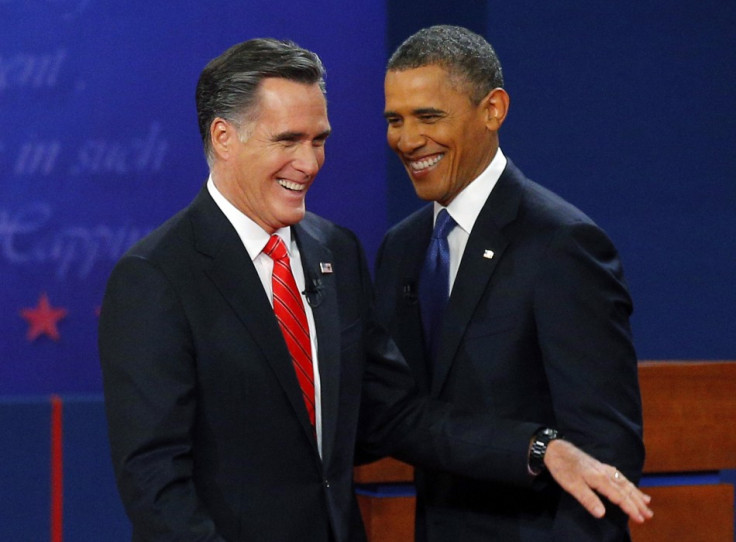US Jobs Report Boosts Obama and Romney in Race for White House

Both candidates in the race for the White House have got a boost from US employment figures but the welcome news on job creation in the world's biggest economy may be easier for President Barak Obama's campaign to spin.
US employers added 114,000 jobs to their payrolls last month, a figure that was largely in line with economists' forecasts but also one that avoided a streak of recent disappointments from the Labor Department releases. As if to atone for previous sins, figures for job growth in July and August were marked up on revision (by 40,000 and 44,000 respectively) to show three consecutive months of solid payroll additions in the next-to-last employment report before the election.
The economy and job creation played a key role in Wednesday's presidential debate, the first of three televised head-to-head encounters between the president and his challenger, Mitt Romney, prior to the 6 November election. Romney was widely perceived to have won the contest, which attracted more than 67 million US viewers, thanks to a spirited performance that many election experts say have given new life to his floundering campaign.
A Reuters/Ipsos poll taken just after the face-off in Denver, Colorado, showed Romney with a 51 percent "favourable" rating among likely voters, the first such score over 50 percent since the campaign began. Obama's figure remained unchanged at 56 percent.
The unemployment figures will give the president's team a welcome reprieve from the debate, as it can reasonably argue that the three-month additions helped push the country's headline unemployment rate to 7.8 percent - the lowest since at least 2009.
Hourly earnings were also stronger than expected, rising 0.3 percent on the month and 1.8 percent on the year to $25.58, another sign of job market stability.
Labour market weakness
The Republican candidate, on the other hand, will no doubt prefer to focus on two figures - one headline, the second less so - as he attacks the economic record of Obama in the final weeks of his campaign for the White House.
Romney can correctly note that the dip in headline unemployment is, in fact, a sign of labour market weakness in that is suggests a good number of Americans have simply given up searching for work after increasing long stretches of unemployment.
That thesis is borne out by the department's labour force participation rate of 63.6 percent - barely a nudge higher than the August reading which itself was the lowest since at least 1981. In effect, the LFP rate tells us there are fewer working Americans, compared to the overall population, than at any time in the last three decades.
Those figures are notoriously difficult to explain, however, given the fact that only those officially looking for work are used to calculate the headline rate of unemployment. Those who've left the job market altogether could have retired early, decided to stay at home and look after their children or infirmed relatives or sought private education.
In a soundbite-driven contest that's accelerating towards a seemingly frantic conclusion, it may prove difficult for the Romney campaign to articulate the underlying weakness in the labor market to audiences schooled to associate job creation with falling rates of unemployment. Put simply: how can you explain what isn't there?
Obama's team can't be blamed, then, for exploiting the crude headline figures that suggest more new jobs and fewer out-of-work Americans - even after he tried to soften the blow of his poor debate performance by accusing Romney of being slippery with the economic facts.
There might even be something in the data to satisfy conspiracy theorists, as well, given that a large portion of the July and August revisions were down to increases in government payrolls. The curious timing of the additions led to the former CEO of GE, Jack Welch , to Tweet: "Unbelievable jobs numbers...these Chicago guys will do anything ...can't debate so change numbers."
In any event, the figures are a reminder of the random nature of certain data that politicans and the media draw upon to explain a complicated economic reality.
© Copyright IBTimes 2025. All rights reserved.





















